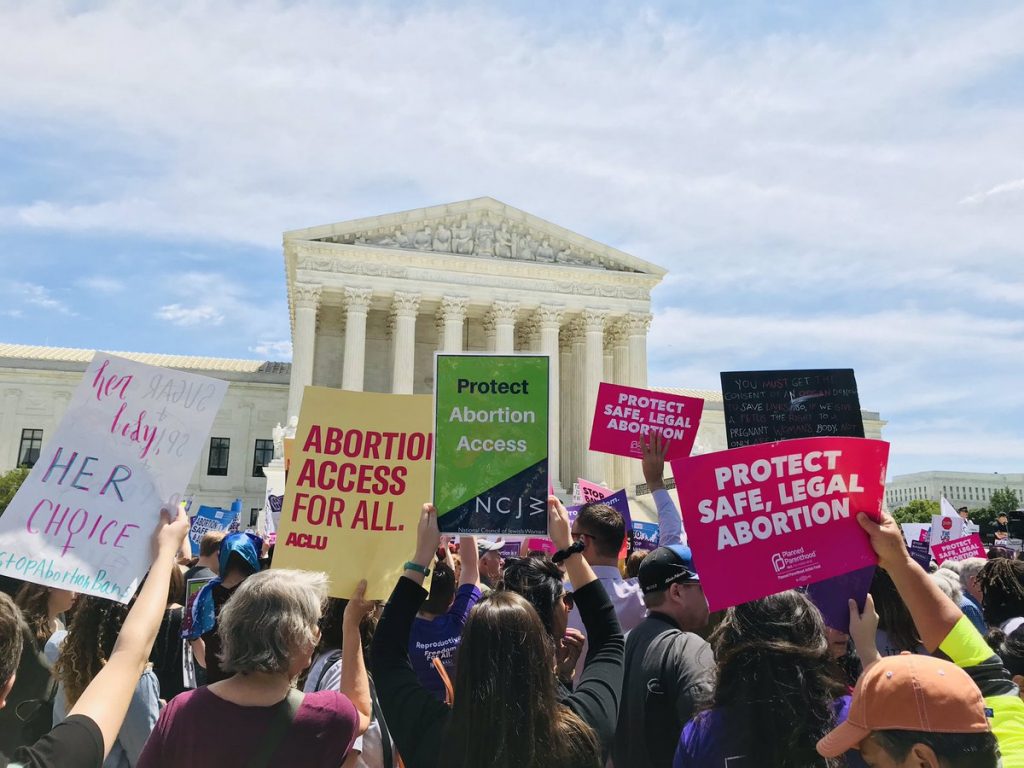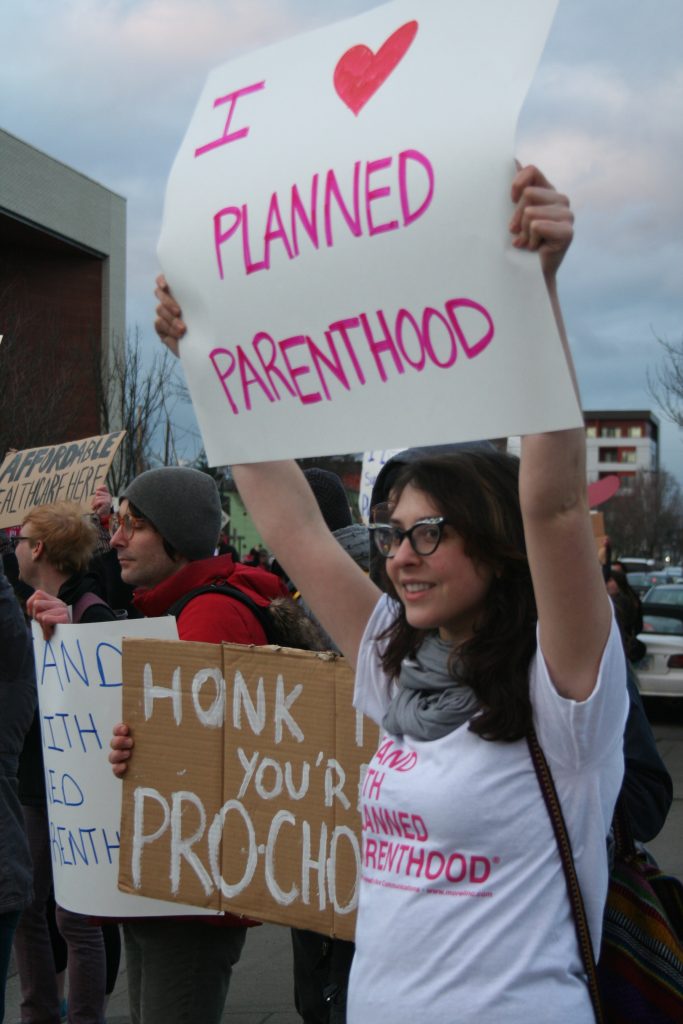Editor’s Note: In the next few articles, we will provide background on the anti-choice legislation that are being passed so that everyone has some basic information on these laws, and we will report from reproductive justice activists on the impact of these bills, and explore with them the steps forward.
The current wave of anti-choice legislation, supported by Trump’s dangerous rhetoric and his appointment of over 95 federal judges, has deep and lingering consequences that go beyond attempts to restrict bodies. The introduced and accepted legislation has serious consequences for access to medicine, voting rights, bodily autonomy and relief from trauma.

HB 126: Missouri Stands for the Unborn Act
Primary Sponsor: Rep. Nick Schroer, 107th District
Impact: House Bill 126 criminalizes abortion after the 8th week of pregnancy. It charges those who perform an abortion with a Class B felony punishable by five to 15 years in prison. There is debate on whether a person who induces their own abortion would be subject to criminal penalties. The debate centers around the following language found in the bill:
“Any person who knowingly performs or induces an abortion of an unborn child in violation of this subsection shall be guilty of a class B felony, as well as subject to suspension or revocation of his or her professional license by his or her professional licensing board.”
The language does not differentiate between a doctor who performs an abortion, or a private person who induces an abortion, including their own.
The bill does not include exceptions for victims of rape or incest. “Any time we are so disrespectful and immoral that we would force a woman to bring to life a child that is the result of a rape, incest or sex trafficking, we are not thinking about life,” says Rep. Barbara Washington.
The bill prohibits abortions if the individual is aborting solely because of a “prenatal diagnosis, test or screening indicating Down syndrome or the potential of Down Syndrome…or because of the sex or race.”
Rep. Nick Schroer, sponsor of HB 126, claims that there is not intent to try to overturn Roe v. Wade: “We do not want to run through the courts and try to overturn Roe v. Wade like some of the legislators in other states, like Alabama. We just want to save as many lives as we can while withstanding judicial challenges ….We want to get as close to the line as possible on what previous judges have thrown out.”
Yet, seemingly knowing legal challenges to the legislation are imminent, HB 126 includes alternative “fail-safes,” providing that abortion shall be outlawed at 8 weeks, 14 weeks, 18 weeks and 20 weeks. If the prohibition on performing or inducing at a lower gestational age is deemed unconstitutional, the next lowest gestational age shall be the new ban.
Should Roe v. Wade be overturned, the bill would trigger a statewide abortion ban.

Impacts on Abortion Care Providers and Increased Incentives for Crisis Pregnancy Centers
As a result of the legislation, abortion providers are now required to increase their insurance coverage from $500,000 to $1 million per occurrence and $3 million in the annual aggregate in addition to insurance per person performing abortions of at least $1 million per occurrence and $3 million in the annual aggregate “for personal injury to or death of a child who survives an abortion….” This insurance requirement will increase the overhead cost of providing abortions for doctors who still wish to provide these services. While it’s unknown whether or not this will deter doctors from continuing their services, the greater cost of providing services typically means those costs are ultimately passed on to those seeking abortions.
The bill also provides a tax credit of up to 70 percent of a taxpayer’s contribution to crisis pregnancy centers. Crisis pregnancy centers operate under the guise of being a fully licensed medical facility. Many times, women are given misleading or plain factually untrue information regarding the safety of abortions, access, services and options for terminating pregnancies. HB 126 allows private donors to receive a tax credit for up to 70% of their contribution.
Finally, current law only requires that one parent be notified when a minor seeks an abortion. HB 126 requires both parents be notified.
Missouri’s Abortion Crisis
Missouri’s history attacking abortion clinics is long. In addition to state-specific tactics, Missouri’s plight in becoming a reproductive care desert is also due to the fact that The Eighth Circuit Court of Appeals, which includes Missouri in its jurisdiction, has failed to declare targeted regulation of abortion providers (TRAP laws) as unconstitutional. As a result, harsh regulations and requirements for Missouri abortion providers pass seemingly unchallenged. Medically unnecessary requirements, including extensive invasive pelvic exams, mandatory waiting periods and admitting privileges into local hospitals, are tactics utilized by anti-choice politicians as a way to decrease the amount of clinics able to provide services, and dissuade pregnant people from actually obtaining an abortion or other healthcare.
Missouri has one abortion clinic located in St. Louis. Activists and advocacy groups scrambled last week, protesting the potential shuttering of the clinic due to the Missouri Department of Health refusing to renew Planned Parenthood’s licensing for the clinic. The license was due to expire midnight, May 31.
Should Missouri’s Department of Health refuse to renew the license, Missouri would be the first state without access to abortion services since 1974. Planned Parenthood claims that Missouri’s Department of Health is “refusing to proceed with its investigation in a reasonable manner.” Dr. Leana Wen, president and CEO of Planned Parenthood Federation of America told AP that Missouri has “illegally weaponized the licensing process.”
Planned Parenthood filed an emergency injunction, which was granted, allowing the clinic to continue operation until a hearing on June 4. The judge ultimately decided that the Department of Health and Senior Services had until June 21 to decide whether to renew Planned Parenthood’s annual license.
Dr. Leana Wen, President of Planned Parenthood, told PBS, “[O]ver the last decade, the state has layered on restriction upon restriction, things that have no basis in medicine or science, things like forced 72-hour waiting period, mandating that hallways have to be extra wide, even forcing, most recently, for women to undergo multiple invasive pelvic exams for no medical reason.”
Bonyen Lee- Gilmore, director of state media campaigns for Planned Parenthood, told Rewire.News: “This didn’t happen overnight….This has been several decades’ worth of work by politicians who are passing medically unnecessary restrictions and working with their political appointees who enforce regulation. They have picked off health center after health center, pushing care out of reach for far too many people. This has been a slow chipping away, a long-term strategy by anti-abortion forces in the state who have planned a long arc to this day.”




